The Paris 2024 Olympics will be etched in memory as a significant setback for Team Jamaica, who’s renowned for track dominance. With only six medals secured, this was far from the illustrious performances the world expects from Jamaican athletes. Even more surprising was that, for the first time ever, Jamaica’s field events outshone the track events. This highlights the decline in our sprinting prowess and the unexpected rise of our field athletes.
A Dismal Olympic Experience
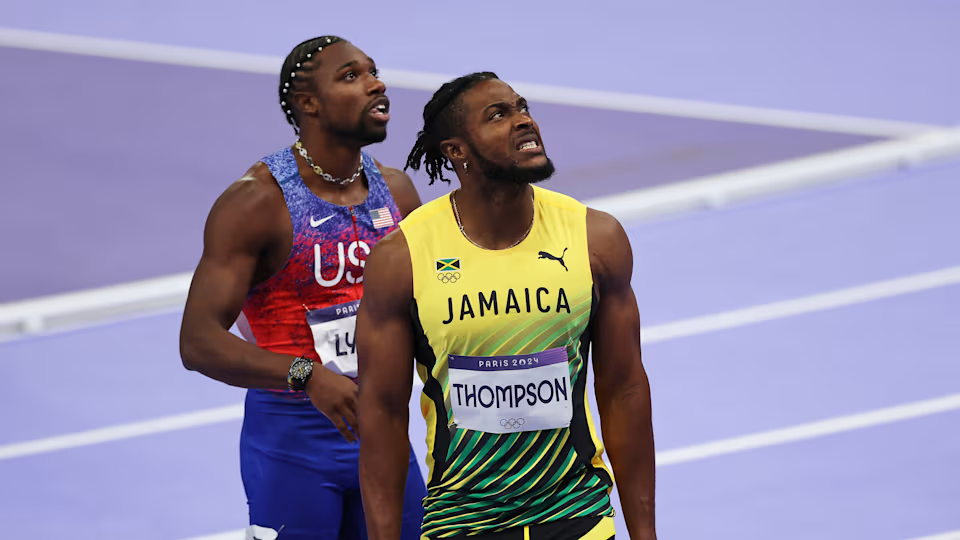
Many issues plagued the Paris 2024 Olympics, affecting the overall experience for participating countries and their athletes. The Seine River, intended to be a picturesque venue, became a symbol of disappointment when pollution led to the cancellation of triathlon events. Athletes faced uncomfortable living conditions. These ranged from the much-criticized cardboard beds to excessively hot rooms, making recovery challenging. The food was widely condemned, adding to the frustrations of those who needed optimal nutrition for peak performance. Moreover, a COVID-19 outbreak and a wave of respiratory illnesses spread through the athletes’ village, further complicating matters.
The logistical organization of the Games, particularly in track and field, was chaotic, with delays and mismanagement that disrupted the flow of events. This backdrop of dissatisfaction set the stage for one of Jamaica’s most disappointing Olympic performances.
Team Jamaica Struggles on the Track
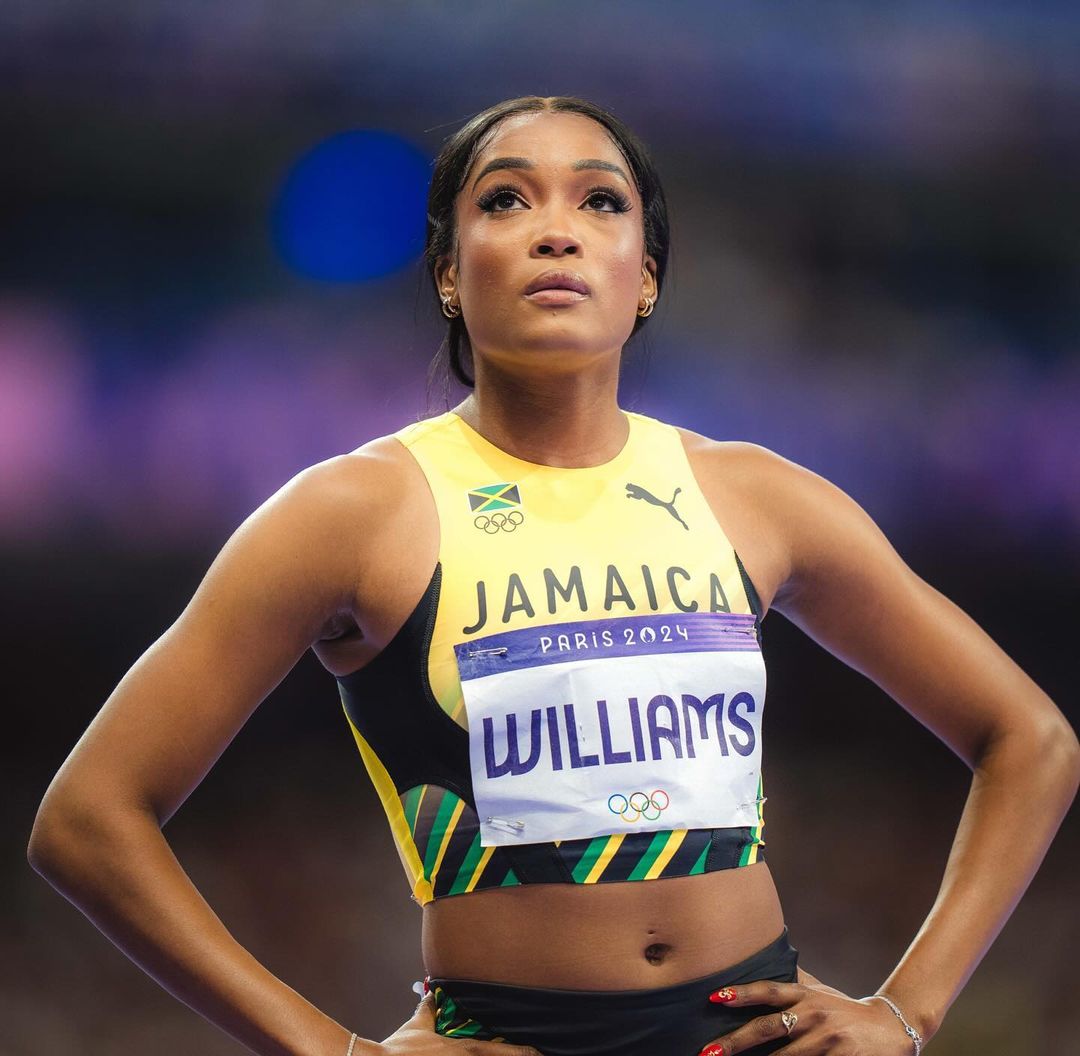
Jamaica’s track and field team, usually the crown jewel of our Olympic contingent, greatly underperformed. These struggles left fans and analysts alike in shock. The problems began long before the team set foot in Paris. Administrative blunders, such as the omission of hammer thrower Nayoka Clunis from the squad and the confusing saga involving Kemba Nelson, set a troubling tone. The absence of Elaine Thompson-Herah, a two-time Olympic double sprint champion, was a significant blow. All medal hopes in the women’s 100m and 200m rested on Shericka Jackson and Shelly-Ann Fraser-Pryce. However, these hopes were dashed when Fraser-Pryce did not start in her 100m semifinal. Jackson also withdrew from the 100m due to injury, claiming her strategy was only to run the 200m and 4x100m. But, Jackson soon pulled out of the 200m and 4x100m relay due to an injury she suffered on the eve of the summer games.
The failure of several key athletes to medal further compounded these setbacks. The women’s 4x400m relay, usually a strong event for Jamaica, saw the team falter with a dropped baton, costing them any chance of victory. In a historic low, the men’s 4x100m relay team failed to make final, breaking a long-standing tradition of excellence in this event. Injuries and illnesses plagued the team, further undermining their performances and contributing to a sense of despair among supporters.
A Silver Lining: The Rise of Field Events
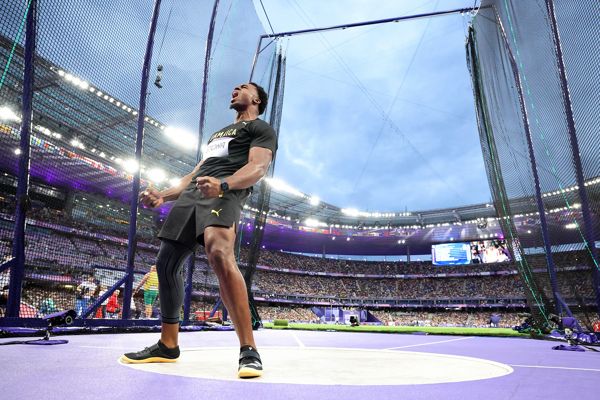
While the track events floundered, Jamaica’s field athletes provided a rare glimmer of hope. The field events outperformed the track events on the medal stand thanks to Rajindra Campbell, Shanieka Ricketts, Wayne Pinnock and, particularly, Roje Stona, who earned Jamaica’s lone gold medal by setting an Olympic record in the men’s discus throw. This shift marked a significant moment in Jamaican athletics, showcasing the potential of our athletes beyond sprinting.
https://www.youtube.com/watch?v=EdvGc6iLX3w
In the shot put, Danniel Thomas-Dodd delivered a solid performance despite her well-publicized conflict with the Jamaica Athletics Administrative Association (JAAA). Her resilience and focus allowed her to secure a medal, bringing much-needed recognition to Jamaica’s field athletes. The long and high jump also saw Jamaican athletes stepping up, with solid performances that hinted at a bright future for these disciplines.
The success in the field events was a testament to the dedication and hard work of these athletes typically overshadowed by their track counterparts. Their achievements in Paris highlighted the importance of investing in a broader range of events. With such investment, Jamaica’s legacy in athletics will grow.
A Need for Reflection and Change
The underperformance of Jamaica’s track team at the Paris 2024 Olympics was a wake-up call. It underscored the importance of proper preparation, effective management, and the urgency to nurture a new generation of talent. The administrative errors that plagued the team selection process, plus the absence of key athletes and the injuries that befell others, revealed cracks in the system that must be addressed.
However, the unexpected success of the field athletes speaks to Jamaica’s depth. It shows that with the right support and investment, Team Jamaica can excel in a wider range of events, broadening our Olympic potential. The current team is relatively young. With the experience gained in Paris, there is hope they will return stronger and more prepared for future challenges.
The Road to Redemption
The Paris 2024 Olympics were a humbling experience for Jamaica. The issues that plagued our athletes, from administrative missteps to health setbacks, culminated in one of our poorest Olympic performances. Yet, amid this disappointment, the rise of our field athletes offers a promising path forward.
To reclaim our position at the top, Jamaica must seriously look at the underlying issues that contributed to this decline. This means addressing administrative inefficiencies, improving athlete preparation, and expanding our focus to nurture talent across all athletic disciplines. If these steps are taken, there is every reason to believe that Jamaica can return to its sprinting dominance and establish itself as a force to be reckoned with in the field events. The road to redemption starts now, with a renewed commitment to excellence and the determination to learn from the lessons of Paris 2024.
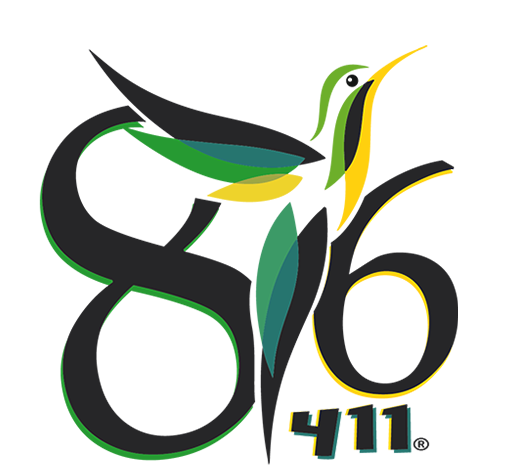

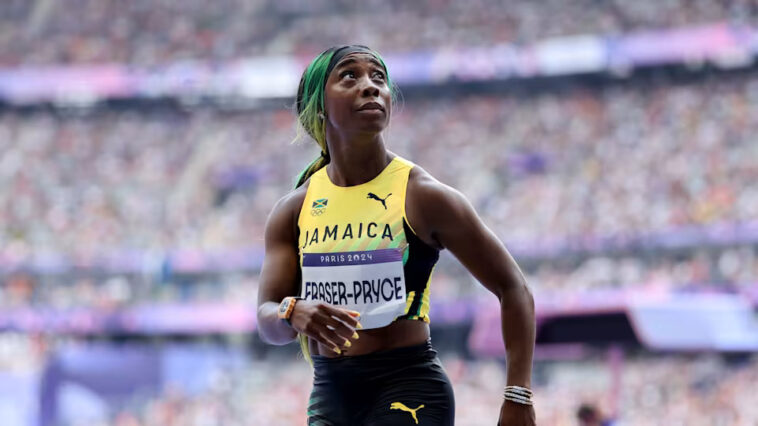



GIPHY App Key not set. Please check settings